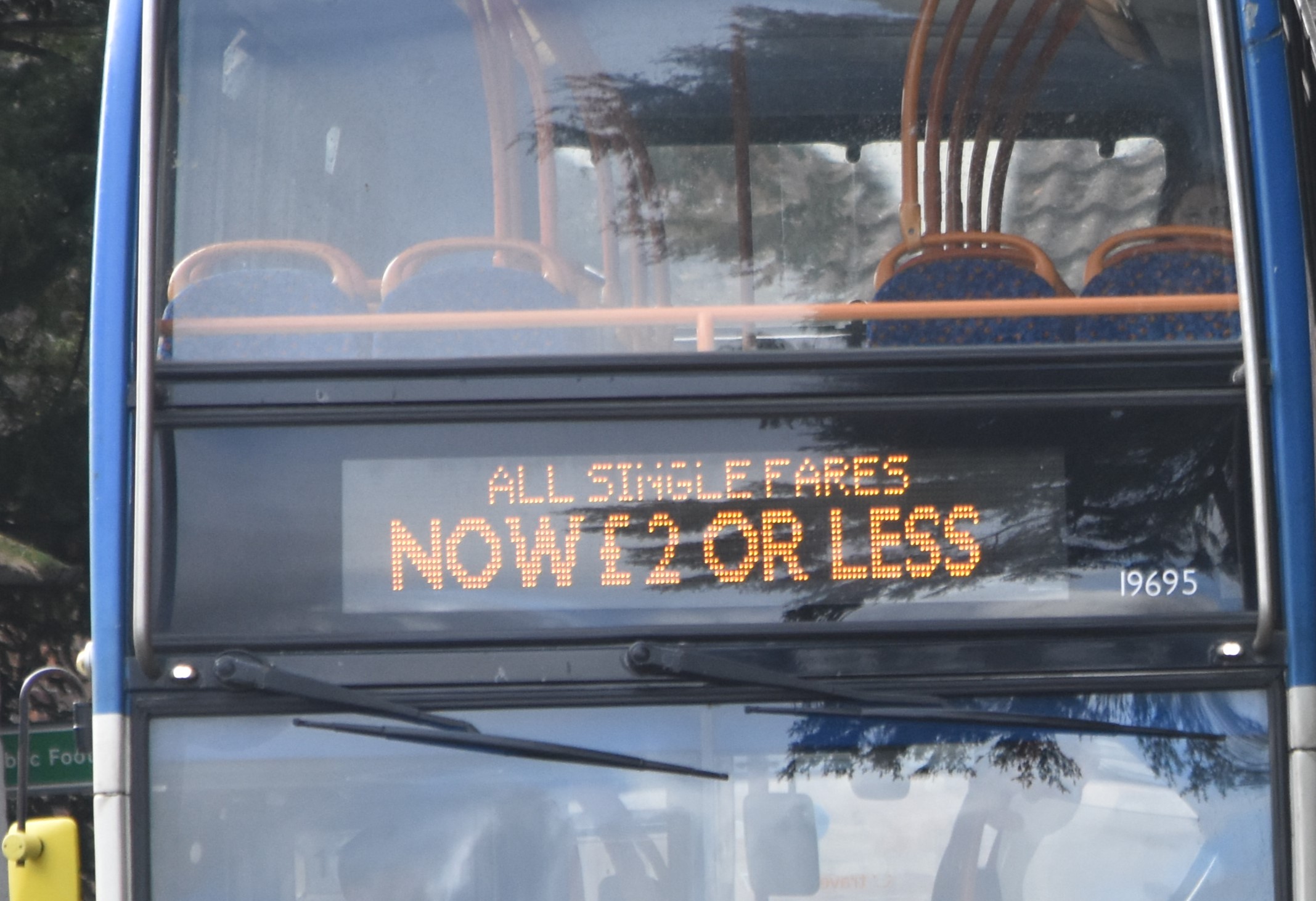The Confederation of Passenger Transport (CPT) has published a report by KPMG outlining options for a transition away from the £2 bus fare cap for single journeys.
The report, Alternatives to the national fares cap – how can the next government make bus travel more affordable for more people?, analyses the positives and negatives of the Bus Fare Cap Grant (BFCG), with due regard also to the impact of its ending in its current form in December.
While no firm conclusions were provided as to the best options, CPT hopes the findings will enable further discussion which will help the government form a follow-up to BFCG.
Analysis was made as to the merits, drawbacks and benefit-cost ratios of eight options:
- Single fare cap (Option 1)
- Day fare cap (Option 2)
- Proportionate fare reduction (Option 3)
- Additional Bus Service Operators Grant (BSOG) funding (Option 4)
- Employment tax benefit (Option 5)
- National free travel for certain groups (Option 6)
- Local concessionary travel for certain groups (Option 7)
- Mobility credits (Option 8)
The report acknowledges the popularity of the £2 scheme but recognises that it brings no benefits to those purchasing day or season tickets and that it constrains operators’ commercial freedom. it also says that transitioning away from a price cap becomes harder the longer it is in place as the gap between the cap and the expected market price widens.
Graham Vidler, CPT’s Chief Executive, says: “Government investment that improves services and keep fares low generates significant economic, social, and environmental benefits. The £2 single bus fare cap has proved popular, and it has supported many people to take the bus through the ‘cost of living’ crisis. But this short-term measure that’s set a new norm in English bus fares is not without drawbacks.
“It is also due to end this coming December, so policymakers must now consider how to avoid long-term damage to bus use, improve efficiencies and services, and – above all – persuade more people to catch the bus.
“With that in mind, CPT commissioned this research to enable a robust and productive discussion about the options to maintain low fares for the long term.
“Given the importance of bus to so many parts of our society, we hope all key stakeholders and policy makers will read this report closely and join this crucial debate.”
Included in the report, KPMG’s survey of 1,549 bus users between 10th-20th November 2023 showed a single-fare option to the most popular of the eight considered. Sixty-two per cent of the respondents felt the initiative proposed was “very good”.
This compared to 54% for service improvements and 52% for the day fare cap idea, which were the next popular. However, the report acknowledges: “This may be because the single fare cap is well understood based on the current policy in place, the universal nature of these whereby most respondents are able to understand and access.”
Among several other insights, the survey also garnered feedback on bus users’ preferences for groups offered free travel. Job-seekers, followed by students and then universal credit recipients were found to be most favoured. Free travel for under-22s as with the Young Persons’ Free Bus Travel Scheme in Scotland was sixth most popular out of seven ideas presented.
Benefit-cost ratio analysis in the report suggests a single fare cap would offer the best value for money. It is calculated at £4.70 in economic benefit for every £1 spent in metropolitan areas, while it is £5.30 per £1 for non-metropolitan areas.
The report notes that the £300 million in government funding for BFCG this year is weighed against £2 billion fare revenue from fare-paying passengers in England outside London. All else being equal, this funding would support an overall 15% reduction in fares, if either of options 1, 2 or 3 were applied.
On this, it adds: “Targeting products with the greatest potential to generate new journeys will therefore provide the greatest value for each £1 of support. We know that it takes time for passengers to adjust their behaviours to respond fully to fare changes. Committing to lower fares over the medium to longer term could therefore help stimulate lasting changes in demand which in turn could reduce the annual cost of support.”
In its conclusion, the report says: “To avoid long-term damage to patronage, policy-makers will need to consider how best to manage the transition back to commercial fares. This will likely involve some combination of initiatives to sharpen the focus of the fare cap whilst simultaneously switching funds to more targeted initiatives that continue to protect vulnerable bus users and initiatives that lead to lasting changes in bus use, particularly those that encourage mode switching.
“In doing so, policy-makers will need to consider the objectives they want to achieve from bus services, and the different options and trade-offs that exist between policies for achieving these. They also need to consider potential unintended consequences of interventions such as adverse impacts on competition and market efficiency. Those who hold revenue risk should be able to control fares, whether that is the operator or franchise/tendering authority to support longer term efficiency and investment.”



























